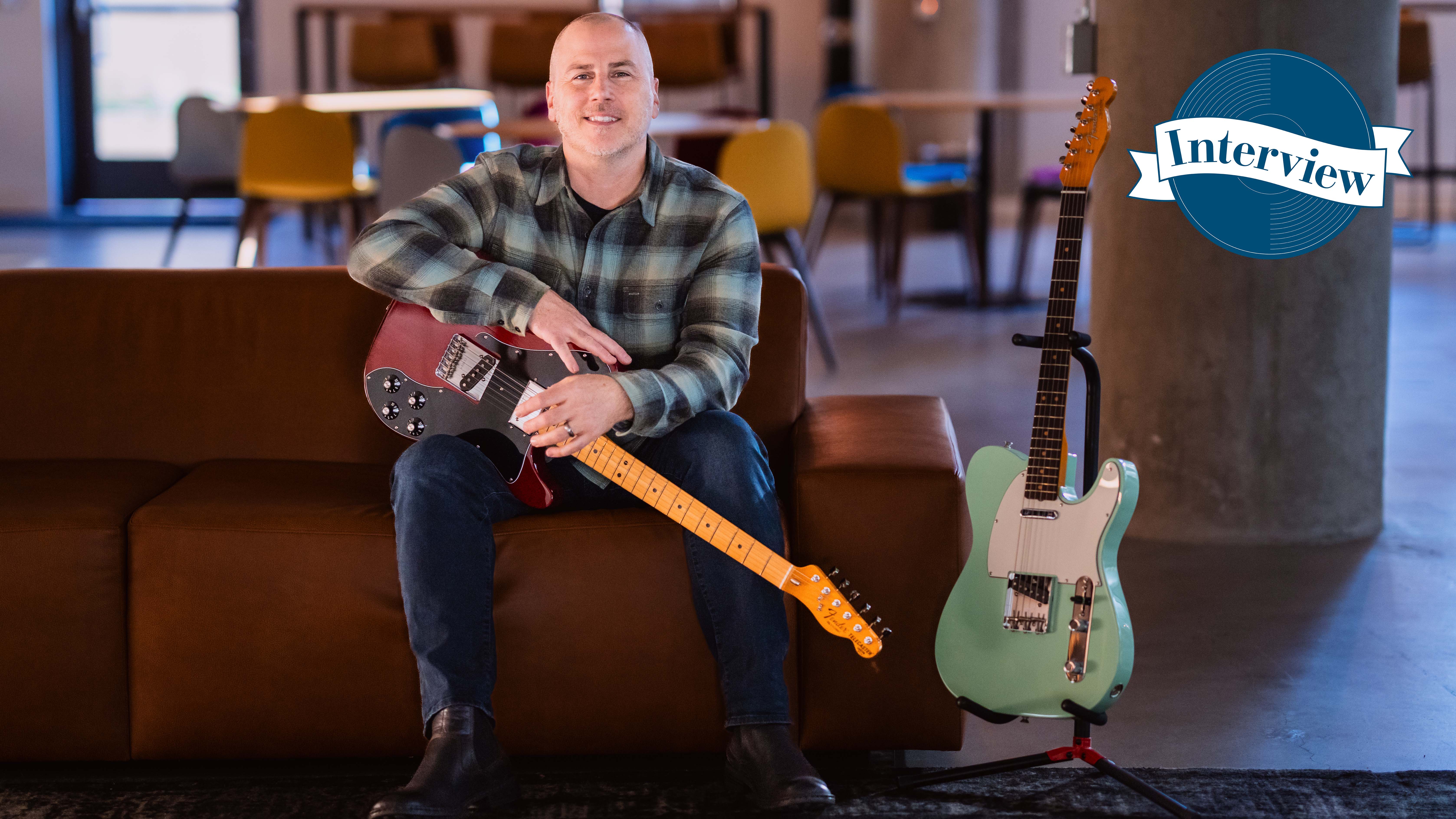
Want all the hottest music and gear news, reviews, deals, features and more, direct to your inbox? Sign up here.
You are now subscribed
Your newsletter sign-up was successful
Justin Norvell is the Executive Vice President Of Fender Products but he couldn't be less of a 'corporate suit' when he speaks to us from Fender's Corona factory in California. With 27 years at the company, his passion for guitar – gear and artists – shines in his work on Fender projects and in the way he speaks about them. He talks and thinks as both a guitar player and a leader in his field who has to help deliver success not just for a MI industry giant, but a cultural institution responsible for some of the most iconic designs of all time. No pressure then!
Who better, then, for a quick review of Fender's 2022 and most importantly, where 2023 and beyond might lead ahead of the company's big product announcements for this year?

A lot happened for Fender in 2022. What were the highlights for you?
"I think that we came to find the new normal in the industry. And it's higher than it was pre-pandemic; there's still way more people in the industry with guitar just seeming to continue to move into the fore, and into mainstream culture and popular culture too – whether that's H.E.R or Harry Styles.
"There were a couple articles I believe I saw in the press, and I think it was actually Harry Styles' manager who said you couldn't see a guitar [in pop for a while], it wasn't kind of as visible or even maybe acceptable. And now culturally it's everywhere. So the omnipresence of guitar has been huge.
"The reaction on the Fender side to American Vintage II has been great. And we're just continuing to churn out new ideas and new designs and couldn't be more excited about what we have coming in 2023."
You mention the American Vintage II, and it's interesting the way Fender strikes this balance between reverence to its past and innovations with models like the Acoustasonic and the Meteora – bold designs. But are there any conservative areas of the industry and guitar culture that you have found to be the most resistant to change?
Want all the hottest music and gear news, reviews, deals, features and more, direct to your inbox? Sign up here.
I would say guitar itself is the more conservative part, where you'll have someone playing a vintage-style guitar through the most insane outboard gear
"First of all, striking that balance is important to us. You have to be reverent to the original recipe, the origin, but if that's all you do you're essentially driving in the rearview mirror, and it's a nostalgia company or it's just relics of the past. But the designs were gotten so right out of the gate that there is a struggle, you don't want to just do newness for newness's is sake. You can't just saw horn off a Stratocaster and say, 'Look, this is a new design' or whatever. It's not only beautiful and iconic but it's sacred. The challenge has been to colour inside the lines. So it's still a Tele but we might have a brand new bridge, brand new pickups, cool electronic system, different neck.
"I would say guitar itself is the more conservative part, where you'll have someone playing a vintage-style guitar through the most insane outboard gear. Effects and amplification are going direct or modelling, profiling or whatever. All bets are off once the cable leaves the guitar, but as far as the guitar itself… It's an interesting thing because you sit at a set of drums or at a keyboard, but you hold a guitar, you wear a guitar; the way that it that it moves with you, it's part of you. And there is something sacred.
"So I don't think it's just like a conservatism that people won't break out of. It's really about finding that balance. And really, for us, when we're doing new designs; we're colouring inside the lines, as we say, where you can make innovations within the sacred geometry of those other things. But yes, effects pedals, multi-effects, recording; everything has evolved, and the guitar just remains."
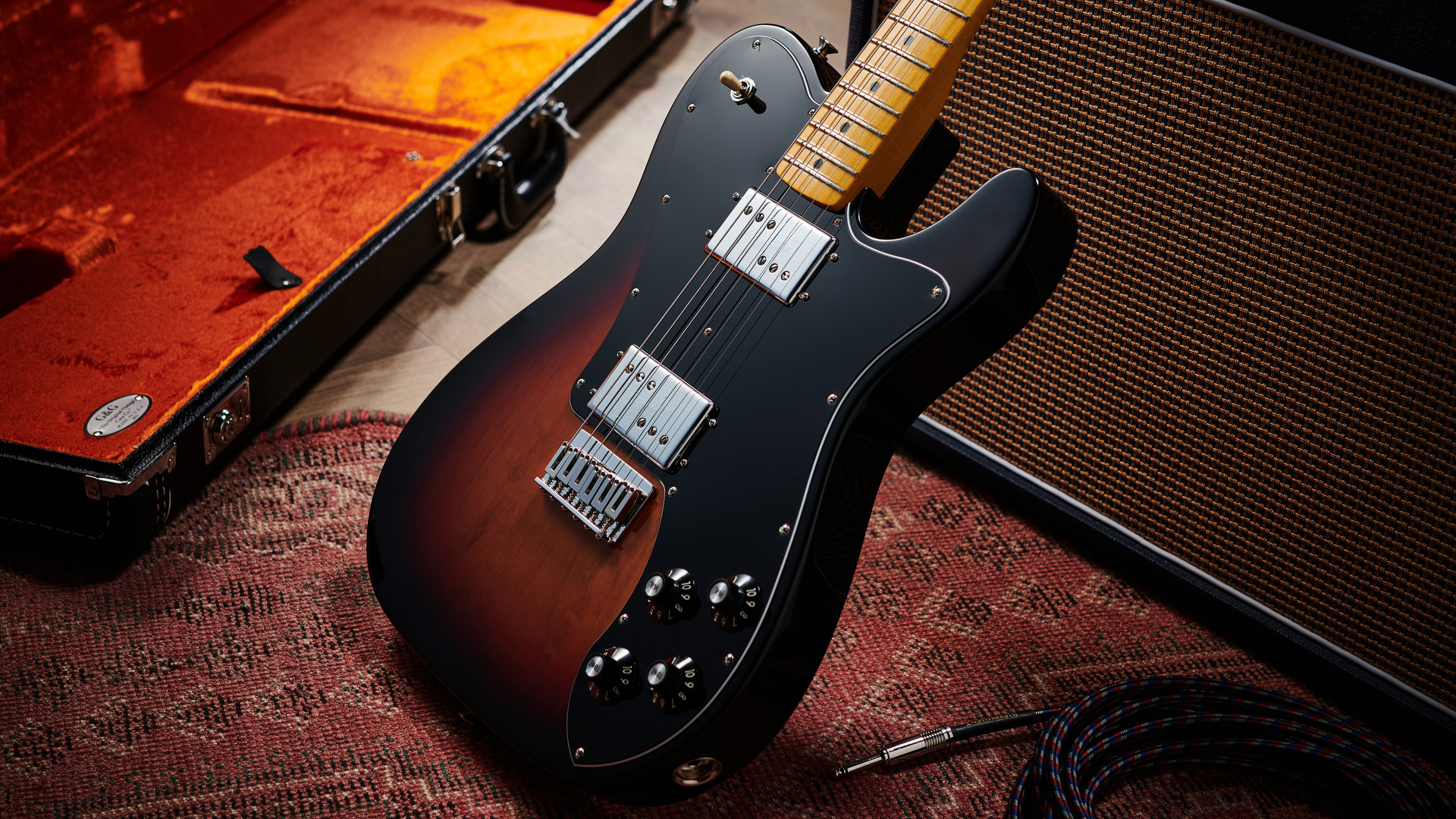
Another interesting element is this idea you can also bring back features from Fender's past and they can find a new generation of players to use them – like the '70s Cunife Wide Range humbuckers that have been reissued by Fender recently, and feature on some American Vintage II Telecaster models.
"Yes, the '50s and '60s instruments were the iconic instruments of, say, the boomer generation, then as Gen X and millennials come up the '70s were for them, for multiple reasons. At that time you couldn't afford a '60s or '50s guitar, but you could afford a '70s one potentially, a decade or so ago. And it's what you grew up seeing. So it's the nostalgia piece you see, whether it's Keith Richards playing a Tele Custom or whatever, I think that there's a something that drives that.
"I do think that [there's been a] reappraisal that's occurred of the '70s. I think some of the designs were lumped in with maybe some of the other issues that were happening in the CBS era of Fender. And some of the designs didn't deserve to be lumped in, in that way.
"Seth Lover designed Wide Range humbuckers using completely unique material that had magnetic screws. There was a lot that was cool about it, and the way that it sounds is awesome. And it is funny because it can be an innovation to be able to remake the things that you can't get made anymore. I look at the American Vintage series, and I look at the lineup of Telecasters; from the '51 with brass saddles and maple neck, to the '63, potentially mahogany body and steel saddles; all the way up to a double humbucking Tele Deluxe and the Thinlines. They're all Telecasters but they couldn't be more different. I think that's a beautiful thing.
"We're always going through all of those eras and designs and trying to pick out what's good. And it took us a really long time to figure out how to make this material again, because we're a small industry; there's a lot of guitar players but as a business, it's small. And so Cunife existed in analogue car tachometers for RPMs and when that digitised that's when Cunife went away. So to get someone to ramp up a magnet factory to make these again – our volumes are not what they're used to so it was quite a challenge but we're really excited to be able to do it."
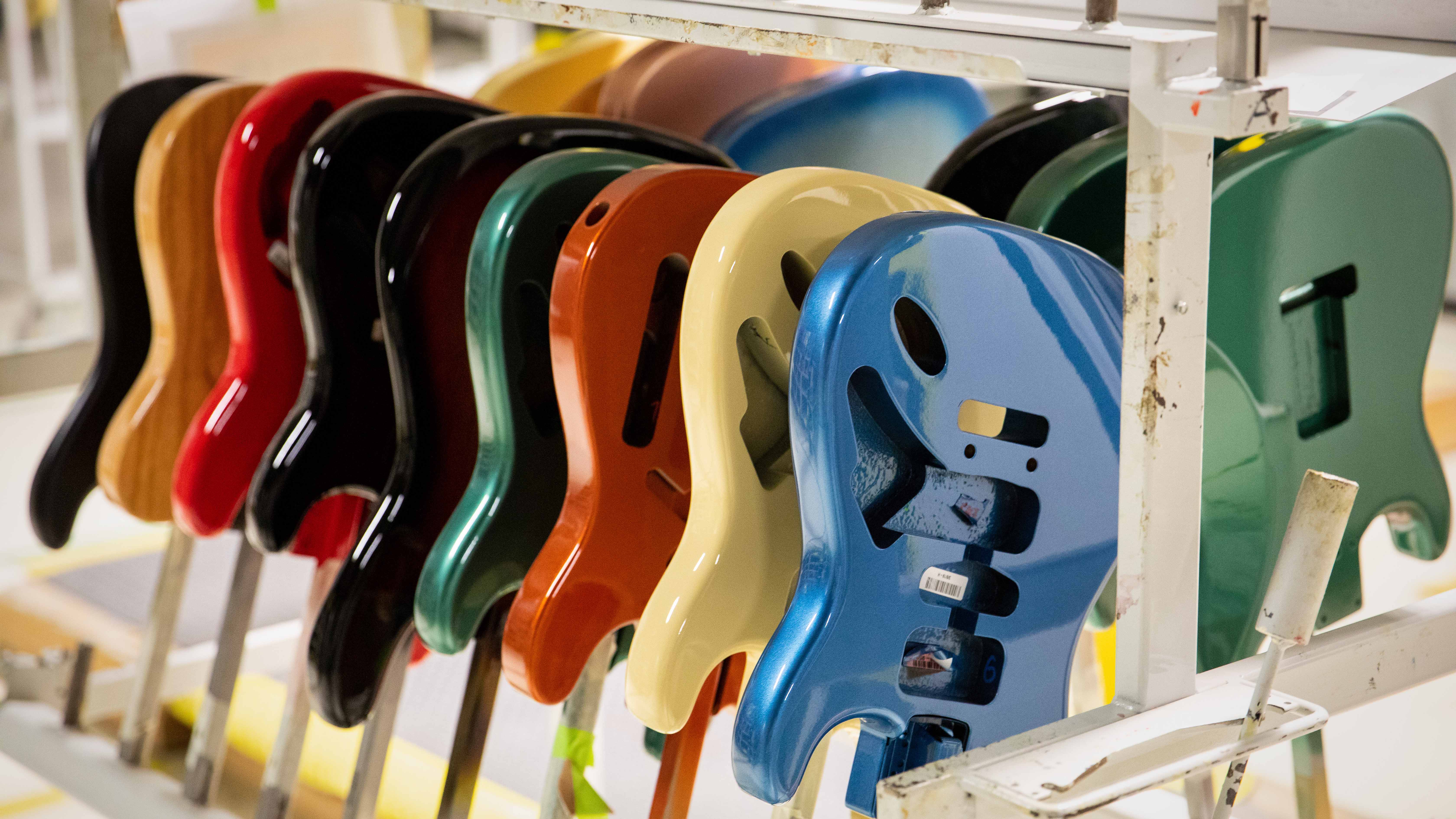
The Fender Mod Shop launched in part of Europe last year; do peoples' choices on specs give you an insight and might that influence future releases when it comes to production guitars?
"It's fascinating, actually. And it does. It's one of the beautiful things about a Fender – nothing's more than 11 screws, at the worst on a modern pickguard, away. And that configurability and modularity really lends itself to that. So we'll throw colours and different things at the wall and just kind of see how people take to them.
"The really ironic thing is you get the list of 'save the image' and the list of what people actually buy and they are completely different. So you would expect a lot of wild colours and things, and you get a lot of that where people are playing around. But when it comes down to it, even in Mod Shop, you could get a different neck or you could get different pickups, but people are still choosing Sunburst, Black – the tried and true. This is the people voting, we're kind of crowdsourcing what people want and it's largely, with all that variation possible, the classics that often win."
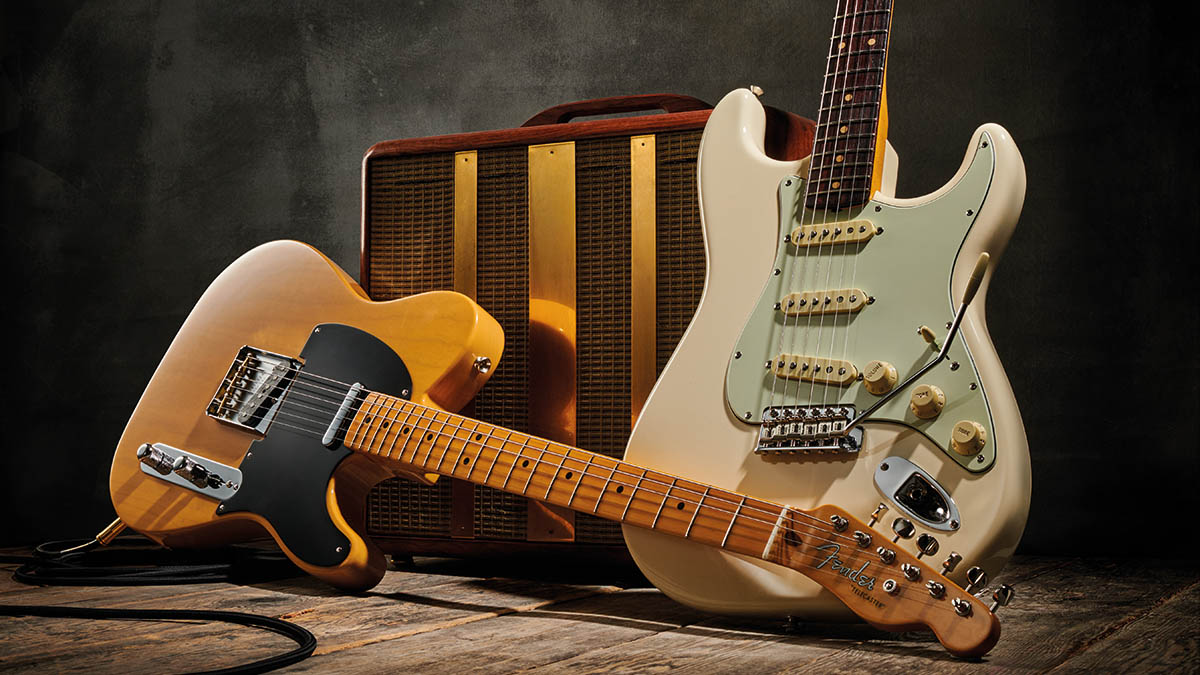
Fender American Vintage II 1951 Telecaster and 1961 Stratocaster review
Did you notice a growth for the more traditional side of things in 2022?
"Yes, but I think it comes and goes. I think there's waves and things kind of can go hypermodern and you think about the nu metal era and everything was much more progressive but then things kind of go much more classicist.
"Even for ourselves with things like Ultra and American Vintage II it's always a gamble for us because we're kind of placing the bet two years out on where we think things will be. But if we're timed wrong it just it's not going to be what we hoped.
"So we've been seeing a real shift back towards that [classicism] and I think that you can see some of it happening musically too. A lot of retro-sounding bands and more warm, analogue sounds. Bands, like the Black Pumas here in the States. So it just felt like it was going back to that.
"Sometimes it's just a classic aesthetic and it doesn't mean the music's going classic. John Dyer Baizley from Baroness plays a Tele through a Deluxe Reverb and he's playing doom-prog. So it's really just about what people gravitate towards, but I do think, whether classic or modern, people feel freer to choose just what they want.
"I think there used to be more of a uniform or 'kit' that went with different genres. If you were going to play this type of music, here's your starter kit. And a lot of that is because of people who are influenced by other people, and you want the tools that you that your idols have. But these days it seems that people will, no matter what kind of genre of music they're playing, play something completely unorthodox to that genre. And I think that that's great. Because it opens up a lot."
A post shared by Official Tom DeLonge (@tomdelonge)
A photo posted by on
Things inevitably find their moment sometimes, and it can be well past its original intent date
That was an interesting point that you made about the two-year gap between development and delivering a Fender product. When some people might say, 'Why aren't Fender doing this or making this?, it's easy to overlooks that you're trying to predict now what that kind of demand will exist in the future.
"Maybe we are doing it right now but it's just not ready. That's a challenge too because, as things shift, or as we notice a trend, we don't rush things out to market. If we want to try to move or do something and be flexible, it still takes some time to be tested and make sure that everything's right.
"But we do also try to do fast stuff. When Tom DeLonge announced he was rejoining Blink-182 we got all over that pretty quickly – had a little semi viral moment, which was cool."
And that's another 'watch this space' development too?
"Yes, I would definitely say so."
He's now using custom Starcasters, and that's another '70s Fender design that is kind of getting another round at things.
"It's so interesting because a lot of a lot of things, maybe they were ahead of their time, maybe they weren't or maybe they just didn't work at a certain time. But then you get Jonny Greenwood or Dave Keuning from The killers or Kele from Bloc Party, and you just start getting people picking them up. It starts to build a little bit of groundswell.
"A lot of instruments that are popular were discontinued at times. The Jazzmaster and Jaguar were out of the line for decades. Things inevitably find their moment sometimes, and it can be well past its original intent date.
"These [DeLonge] Starcasters are obviously completely new. And it's interesting, because it's kind of a hybrid of his last two [signature] instruments. So that's pretty fun."
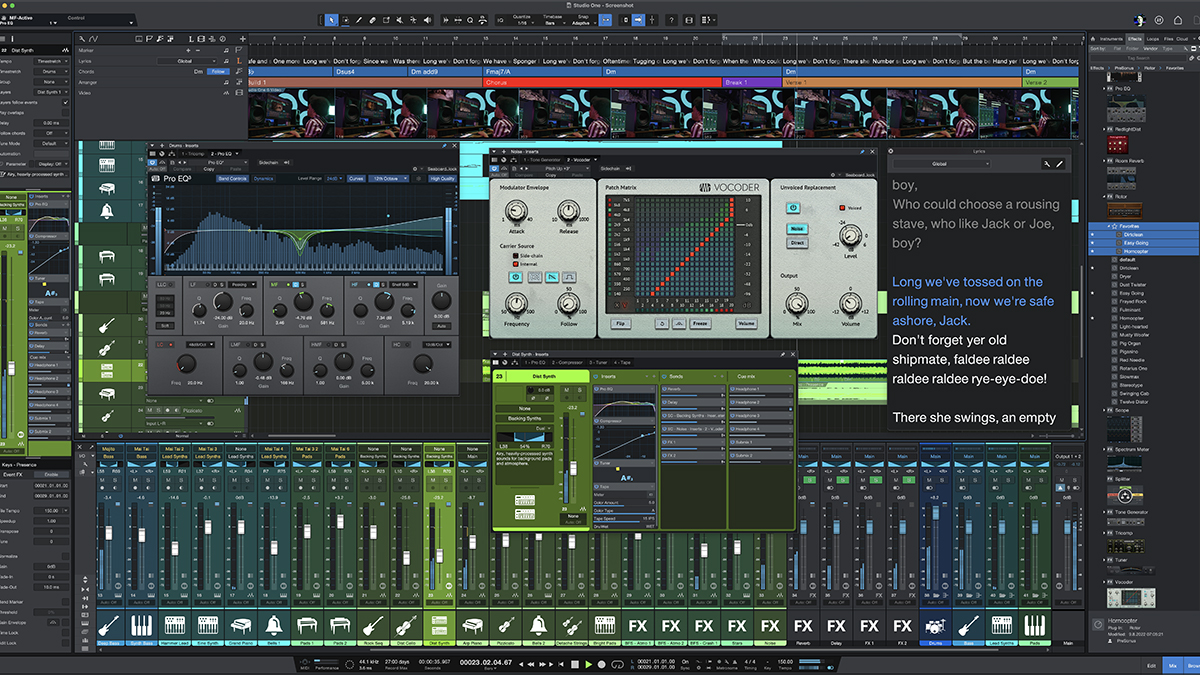
Guitar itself has a high abandonment rate. Piano has a high abandonment rate – every musical instrument does, because it's difficult, and it doesn't make recording any different
We talked to CEO Andy Mooney in 2022 and he spoke about Fender's plans for PreSonus and recording, and specifically reaching new people. He felt that home recording wasn't easy enough for new users and that was something he was really pushing for, to make it more straightforward. What are your thoughts on that and how the project is going?
"In the aftermath of that [reaction to the interview] I saw… I think it's an and proposition, not an or proposition. To someone who is fluent in DAWs, many [of those] people want more functionality and more capability. To someone who is new it's the kind of progressive complexity, I would say. But a lot of times, you just get thrust right in where you're just like, 'I don't even know what to click, or how to get started'. And it's the idea of demystifying that way back at the outset.
"Generationally, because recording is so new, it's not all young people getting into recording, it's all the way up through the age brackets. Just the idea of an easy way in and then, okay, can I introduce effects? Busses – all the things that eventually get you there. Sometimes the whole thing at once to some [users], from the research that we've done, it has been a challenge. And I think that's a challenge for the whole industry, because guitar itself has a high abandonment rate. Piano has a high abandonment rate – every musical instrument does, because it's difficult, and it doesn't make recording any different.
"So it's just another one of those things that you have to do a lot of work to get proficient at it, to the point where you're enjoying it. There's so many different ways to attack that, and there's so much going on in the mobile space – whether tablet or phone. Steve Lacy, several years ago, was recording whole albums on into his iPhone – where's that going? Sonic quality, processing and all that stuff. So it's a very, very exciting time. I think we're entering into the second renaissance period of that business; the recording industry and where that can go.
"But it is one of those things that when someone can play guitar, and some people play and they put it down for a while, or they just do a little bit, when someone starts recording they're way more committed. Because you get into songwriting, you get into tones and sculpting, and collaborating – it's a much more immersive thing than maybe playing some songs on your couch. And so that is something that we want to make accessible I would say – and just make sure that it's accessible. But it doesn't mean by any stretch of the imagination that the full professional DAW is going anywhere, and that's something that we're committed to continuing to expand upon, refine and improve."
So this isn't about dumbing down, it's about attracting new people with the option of a gateway.
"Yes, I mean, there's so many things in the world that have got a light / medium / heavy thing that even some of the light versions of some software that you see at glance can seem like it's everything, even though it has less going on."
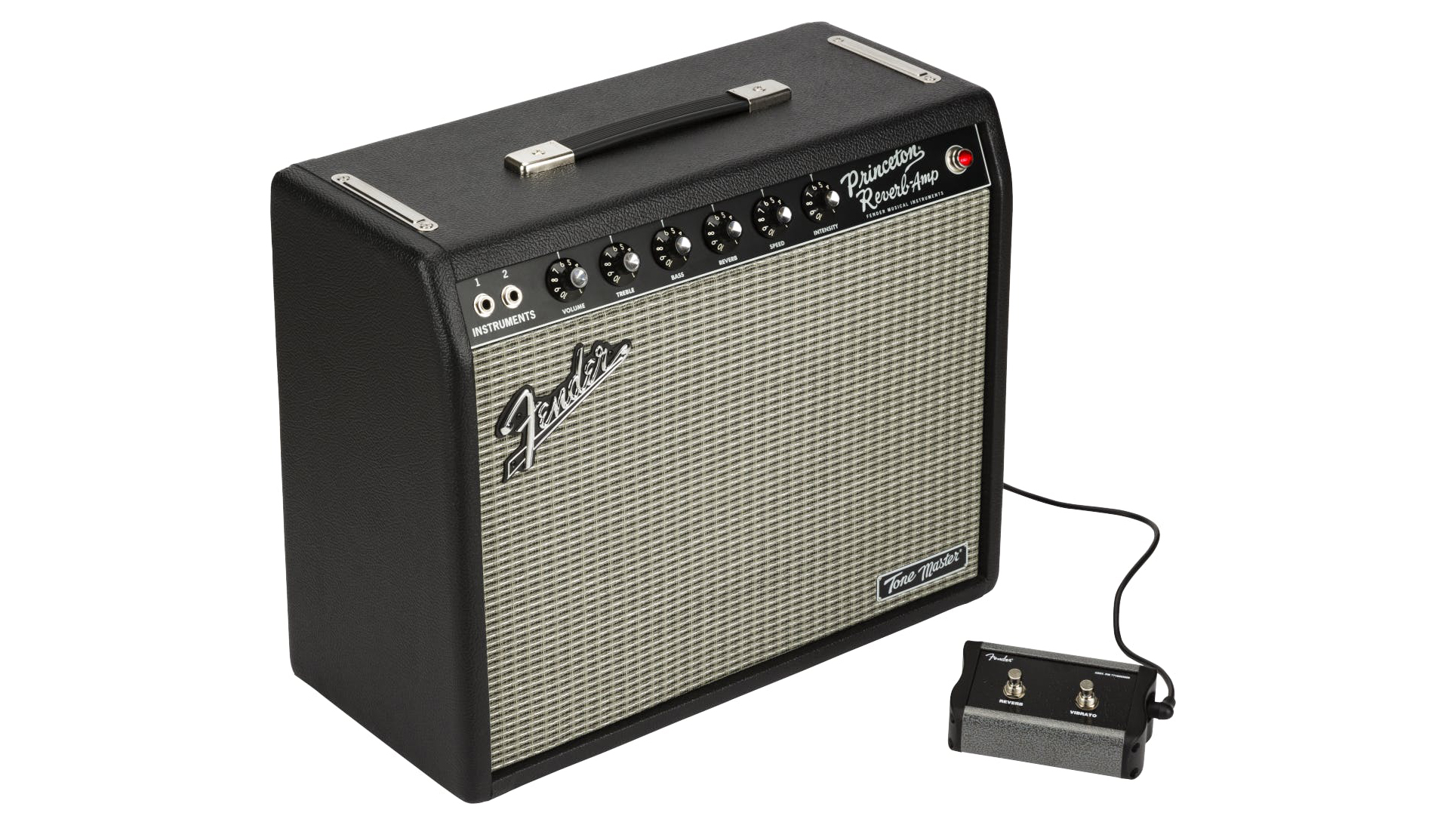
The Tone Master was a move to say, we're not going to make this digital amp do 100 things pretty well, we're gonna make it do basically one thing extremely well
The results from our reader's poll for their favourite new amps of 2022 were interesting, and for the first time we included amp pedal and modellers. Number one was an amp pedal – the Universal Audio Dream '65 – based on a Fender Deluxe Reverb, number two was the Tone Master Princeton Reverb. People want hybrid options more than ever, with the ability to record direct, is that an area Fender would like to explore further or do you think it will stop at Tone Master?
"No, I think we feel that the digital space is where most of the innovation and the future of a lot of amplification is. Tubes are always a question and sometimes hard to get. The yield of tubes even when you get them and all of that stuff.
"I think that digital always was, for many years, a compromise where you got a lot of versatility, it was less finicky maybe live. It was lightweight, portable, but you lost the tonality – something in the tonality. And the Tone Master was a move to say, we're not going to make this digital amp do 100 things pretty well, we're gonna make it do basically one thing extremely well, and show that you can get to tone with a digital amp. I think that just blows the doors off and blows everything wide open.
"From there, there's tonnes of stuff in our r&d, and in our design areas right now that we're working on to that end. And not just more retro reissues of amplifiers. So we see it kind of moving into a more modern space as well but I think the establishment of the sonic character and the dynamics of when you back off, and turn the volume on your guitar down, and the convolution reverb and all of the things that we did that made those amps work, are great.
"I think you're seeing that with other people's amps as well where there's IRs in tube amps, and there's load boxes, and all of these things. Even if you are a tube purist at some point you still probably have to engage it in a way where you're not turning it to 10 through a 4x12 everywhere you are, and how do you get what you need out of that? And so even the analogue is having a digital bridge, kind of like analogue to digital, kind of conversion. So that's super exciting to us and I think that the future is that there's a lot coming that's going to be very exciting from us on that front."
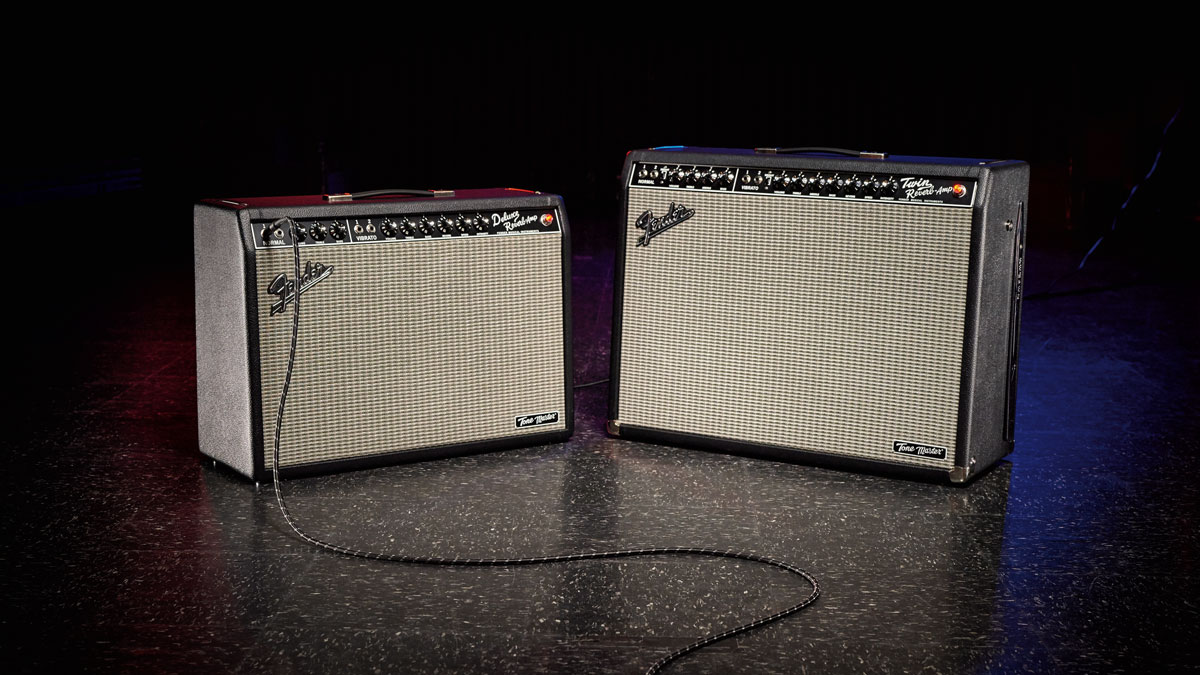
But it's also great to see that a '60s amp design is relevant to a new generation of players, and the idea of a 'pedal platform'.
"Having no idea that people would be putting a six-foot wide pedalboard on the ground in front of it! But it just works and I think that's one of the things about all the platforms whether P Basses or J Basses, Strats, Teles or Jazzmasters, they adapt to the personality of the player really well. Not all Strats sound the same, so they have that transparency but with colour; because you can hear a Strat and hear a Telecaster so it's not neutral but it's able to adapt to the personality and style of the player as the amps do as well.
"It allows players to create a more individualistic sound that they're seeking, and there's so much more of that these days. Especially as guitar has expanded so much from riffing and driving the song to really sometimes being the colour and the ear candy; sounding very unguitar-like in many cases."
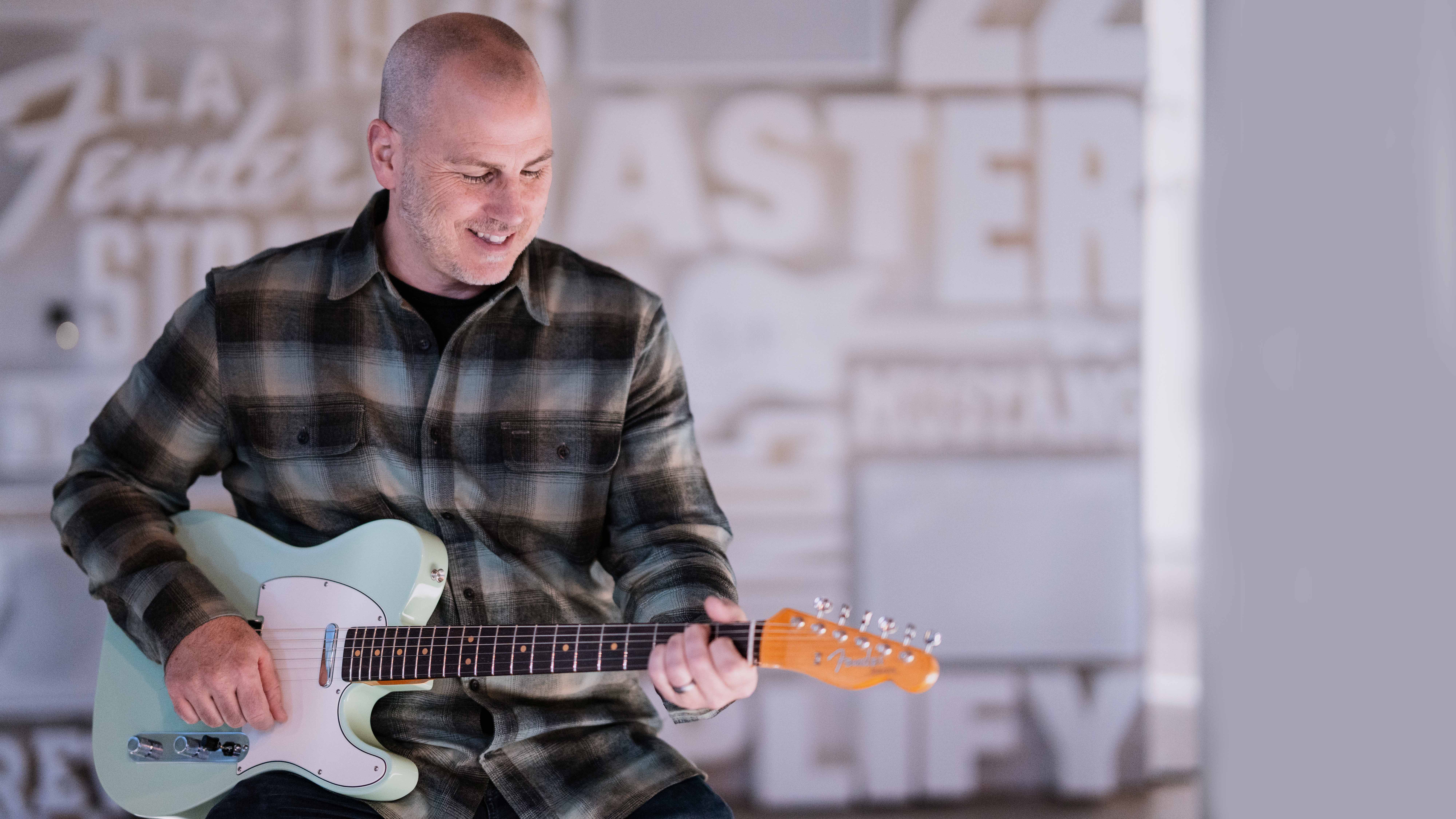
With great pedals you can build a song, a song that never would have existed, because of the tone
With that in mind, what kind of trends are you seeing in effects? It seems like cleaner tones are having their moment again with a new group of players, while reverb and delay pedals are always popular.
"It's all of those but it's the interesting flips on those where it's gated reverbs and reverses and interesting asynchronous dual tremolos. It's more to the fringes. There's always your basic pedals but I think people are enjoying all of the really out-there kind of effects.
"With have our Reflecting Pool which is a delay / reverb combination that gets you shimmer and the deeper effects, but other people out there, like the Chase Bliss stuff and the Hologram [Microcosm], and that's stuff that I think is really inspiring, because with great pedals you can build a song, a song that never would have existed, because of the tone. So it's not like hitting an overdrive to play a solo, when you're really tweaking on these kind of heavily effected pedals, you can really come up with some cool stuff that creates completely new sounds and music."
Pedals are very important to us, and we have some some cool stuff coming towards the middle or end of the year that I think will be really, really cool for everybody to check out
Fender has gone all-in on effects pedals, is the plan for that to continue in 2023?
"Yes, and I think that we've been mindful as we've started and have entered that market of making sure that the bases were recovered. The Hammertones have done great, making an affordable line of pedals that are still designed by Stan Cotey, the same guy who designed the the higher end pedals that we did.
"Pedals are very important to us, and we have some some cool stuff coming towards the middle or end of the year that I think will be really, really cool for everybody to check out. And it's the next natural evolution for us as we move forward."
Do you think there's a link between the rise of more experimental pedals to create parts, rather than simply colour existing parts, to the how much the separations between musical genres have been eroded for many listeners?
"Yes, 100% – it's so wide open. Again, I think it's everybody's free to kind of find a sound and do whatever they want. There's a guitarist Mk.gee, who plays for an artist named Dijon, but he's also a solo artist. He runs his sound through an old Tascam 424 and uses the gain on that as part of his signal, and uses some really kind of aggressive pedals that are played in a very understated manner and it sounds like nothing else.
"So you have these artists that are creating a voice for themselves and kind of evolving genre with these sounds. Because there's so unexpected in certain types of music, like you'll be listening to a song that has a certain sound and then this effects-laden guitar comes in out of left field. And I think that's great, because that's the stuff that doesn't keep you in cruise control musically, it snaps you out of it and makes you take notice. And so I'm all for it and I think it's awesome."
At the same time Fender Play is introducing classic songs for beginner players to learn, but what do you think are the biggest reasons players give up on the guitar? Learning songs must be a crucial way to keep people inspired?
"Even if you can play a scale, or you can play a couple of chords, the whole goal is it's just like learning a language; you can conjugate some verbs, or have a couple of vocabulary words that aren't connected but you really want to know how to say sentences and be able to communicate with someone. So because these are songs you know, that's the quickest win for someone to feel the reward of hearing themselves doing the thing that they love, and hearing that song they love.
"I have a friend who is a guitar teacher, and one of one of the ways he teaches kids is he has a list of songs that he's adapted for one finger playing. So literally after a lesson, with probably D and G strings together in unison, you can have three riffs under your belt in an hour. I think that kind of thing super de-complicates something that's daunting, even though you have to go back and fill the rest in afterwards."
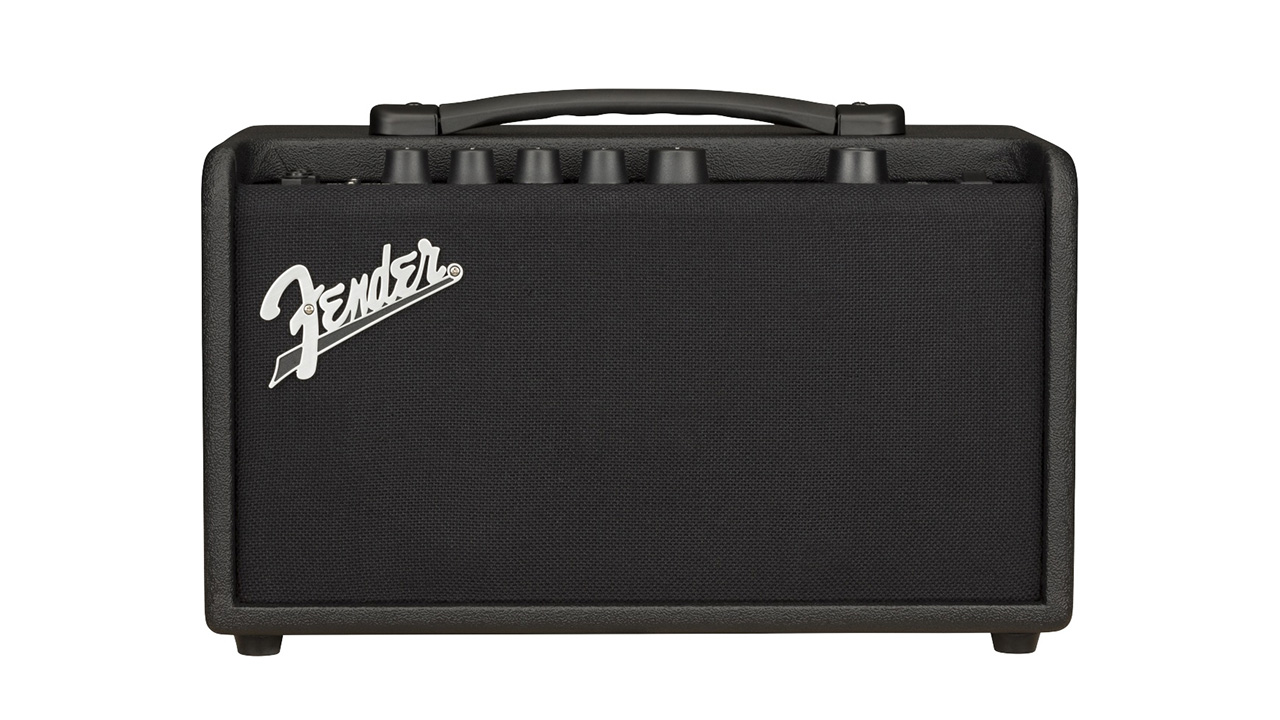
Do you have any gear predictions or directions for this year that you see the industry headed in, and is there anything you can reveal to us that's on its way from Fender?
"Well, I would say gear predictions would be just the continued push in digital amplification and effects. I think those two areas are leading the industry in terms of innovation and forward momentum.
"New sounds drive the industry, so when there was distortion, that changed everything, when there was feedback, it changed everything, the Floyd Rose and the dive bomb changed everything. The delay pedal with Edge changed everything. So these sonic advancements can completely bring about new genres and new cultural movements really, to not be so grandiose about a pedal or an amplifier, but that's really the the opening of possibilities that exist there.
"So I think those are the biggest ones. Our commitment right now is full steam in the digital amplifier and effects space. And it's probably a little early to really lean into it but just there's more to come on our Tone Master platform later in the year, and it'll be great."
There's a lot of stuff that's timely, and of the moment, but when people look back on history, the timeless stuff holds up. And that's always true with guitar
You've been involved in some amazing projects over the years, like the Kurt Cobain signature Jaguar, do you have any favourites that have been particularly close to your heart?
"I'd probably say a couple. I think the first one I did that resonated with people was the [Vintage Modified] Squier '51. And I think that that was kind of my start into this world. Most artists models, they're all a pretty fantastic journey. And they all kind of have their own story and getting to see them play these guitar and know these people is nothing short of amazing. So it would be hard to pick an artist. But I would say artists models overall.
"Whether that's working with Johnny Marr, Nile Rodgers and being able to check out and take apart some of these guitars, like Kurt Cobain's. Because fenders are so modular. Everybody mods them, everybody does different stuff to them. And it's like real-time, real world research of what people are doing with them. How are they getting that sound? Why do they have this there? And so they'll explain that or you'll look at it like, oh, they changed this in the wiring. And that makes it so there's a CSI, forensic nature to it. And there are people, like Johnny Marr is so committed. I mean he's been redesigning since before we had our model together. He was personally out there retooling parts and redesigning things, just for himself. And I think that's amazing.
"The guitar is alive and well, and people find their tool, their paintbrush that they need. I think, as far as music goes, we're years past the old article of 'Is guitar dying?' or whatever. We're in a period where everybody acknowledges guitar is big. But I think that guitar as a sound, it is timeless. And there's a lot of stuff that's timely, and of the moment, but when people look back on history, the timeless stuff holds up. And that's always true with guitar.
"Think of 1991 and you think of Nirvana – Nevermind and Blood Sugar Sex Magik came out on the same day. You think about the advent of the grunge era and alternative music. If you go back and look at the charts in 1991 with the biggest-selling artists, they're not on there. The American charts were like Paula Abdul, Color Me Badd, Mariah Carey – it's not everything that people think of when they go back.
"So it speaks to a timelessness because as history has gone on, that's what held up. And the guitar goes back because it's a great instrument that just works. And it's so expressive and nuanced and that's the fantastic thing about it. Now with effects and everything, you can do anything on one – it's amazing. I'm 27 years into this business and I still approach it with a childlike wonder every day."
- To stay up to date on the latest releases visit Fender

Rob is the Reviews Editor for GuitarWorld.com and MusicRadar guitars, so spends most of his waking hours (and beyond) thinking about and trying the latest gear while making sure our reviews team is giving you thorough and honest tests of it. He's worked for guitar mags and sites as a writer and editor for nearly 20 years but still winces at the thought of restringing anything with a Floyd Rose.